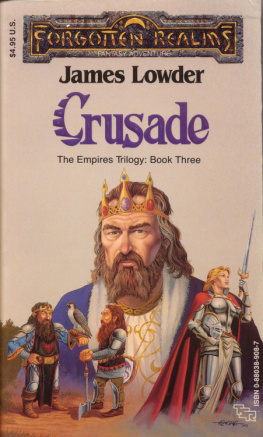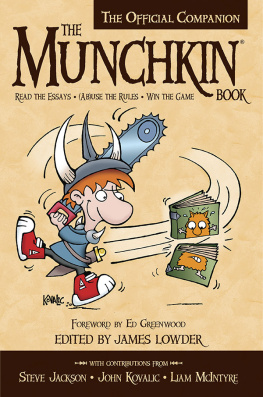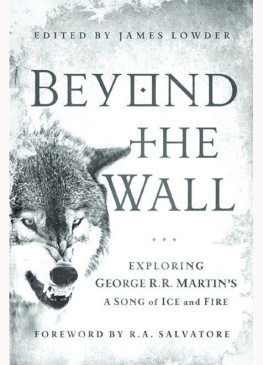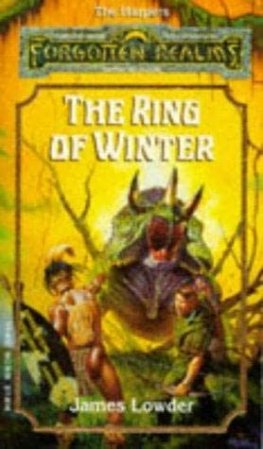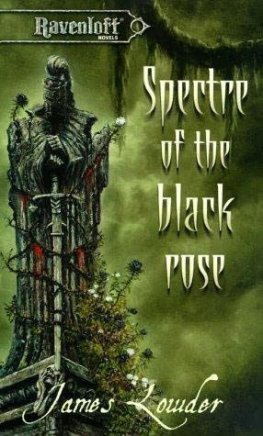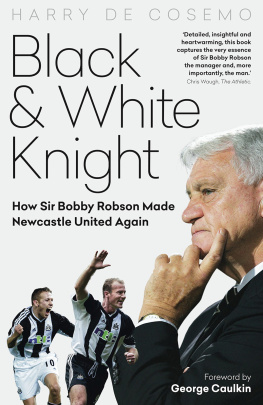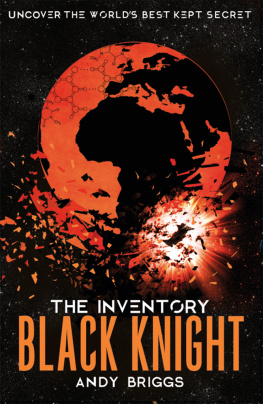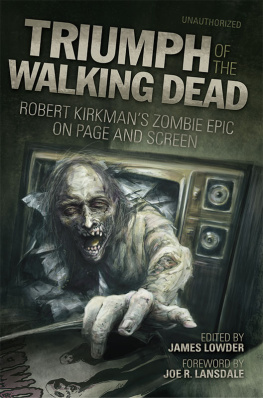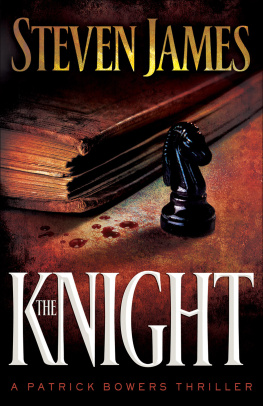James Lowder - Knight of the Black Rose
Here you can read online James Lowder - Knight of the Black Rose full text of the book (entire story) in english for free. Download pdf and epub, get meaning, cover and reviews about this ebook. genre: Romance novel. Description of the work, (preface) as well as reviews are available. Best literature library LitArk.com created for fans of good reading and offers a wide selection of genres:
Romance novel
Science fiction
Adventure
Detective
Science
History
Home and family
Prose
Art
Politics
Computer
Non-fiction
Religion
Business
Children
Humor
Choose a favorite category and find really read worthwhile books. Enjoy immersion in the world of imagination, feel the emotions of the characters or learn something new for yourself, make an fascinating discovery.

- Book:Knight of the Black Rose
- Author:
- Genre:
- Rating:3 / 5
- Favourites:Add to favourites
- Your mark:
- 60
- 1
- 2
- 3
- 4
- 5
Knight of the Black Rose: summary, description and annotation
We offer to read an annotation, description, summary or preface (depends on what the author of the book "Knight of the Black Rose" wrote himself). If you haven't found the necessary information about the book — write in the comments, we will try to find it.
Knight of the Black Rose — read online for free the complete book (whole text) full work
Below is the text of the book, divided by pages. System saving the place of the last page read, allows you to conveniently read the book "Knight of the Black Rose" online for free, without having to search again every time where you left off. Put a bookmark, and you can go to the page where you finished reading at any time.
Font size:
Interval:
Bookmark:
James Lowder
Knight of the Black Rose
PROLOGUE
One name recorded here, in these scrolls that make up my history of Krynn, has become a byword for corruption and monumental evil throughout the continent of Ansalon: Lord Soth of Dargaard Keep.
The Knight of the Black Rose.
Such was not always the case. Once, in the years before the gods punished mortals with the Cataclysm that shook these lands to the core, Lord Soth was a great and noble soldier for Good, a member of the renowned Knights of Solamnia. In that most famed of famed brotherhoods, Soth attained their highest honor, the Order of the Rose. For a time, he fought for justice and freedom. His heart remained pure then, his soul unspotted. When it came time to build his castle, Soth designed it himself to resemble the symbol of his order-the flawless red rose.
Yet it was not long after Soth married and brought his wife to Dargaard Keep that darkness settled upon his life, a darkness so profound he has never escaped it, a corruption so complete it made the once-proud knight a willing agent of Takhisis, the Queen of Darkness.
Some claim that pride undermined Soths will to do good, others say lust, and still others greed. Of those who still walk beneath the triple moons of Krynn, only Soth himself knows for certain the cause of his own doom. The world is left to construe what it will from skeletal bits of history.
Soths wife befitted a man of his station and potential. A nobles daughter and only child, she offered the young knight much in the way of worldly goods. That love had little traffic in Dargaard in those days was apparent to all who visited the keep, if they found Soth there at all. The lord of the castle spent much of his time traversing the Solamnic countryside in search of suitable wrongs to right, accompanied by thirteen knights loyal to him above all others.
The summons to Palanthas, most beautiful of all cities, came to Soth early in the spring. He and his retainers set off for the Knights Council to be held in that unconquered city, but before they reached its perfectly planned streets, temptation bested the Knight of the Rose. He and his men came across a mob of ogres attacking a small band of elven women. The knights easily defeated the brutes, save one who had snatched up an elfmaid and dashed off into the woods.
Lord Soth himself battled and conquered this, the strongest of the ogres. The woman he saved, a young elfmaid on her way to take her vows as a Revered Daughter of Paladine, dazzled him with her innocent beauty. Soon after, they became secret lovers, though in doing so Soth broke both his sacred marriage vows and the Code of the Knights of Solamnia.
It seemed as if the lord of Dargaard Keep believed this blot on his soul would remain hidden forever, for he went to the Knights Council as if nothing had transpired between him and the elfmaid. Yet two things conspired to bring the Rose Knights shame to the pure light of Krynns sun. The first was the news that Soths wife had disappeared from Dargaard Keep. The blood found in her chambers cried foul play, and the noblemans almost casual reaction to this shocking news made many in his order wonder for the first time if they had judged Soth too highly.
The second incident that shouted Soths guilt to those gathered at the Knights Council was the elfmaids sudden illness. When it was discovered she was with child, many suspected Soth, for he had kept company with her even before his wifes disappearance. The other elven women who had been rescued by the Rose Knight and his followers that fateful day confirmed those suspicions and revealed Soths faithlessness.
The minutes of Soths trial are recorded elsewhere in this history. Here I will note only that he was found guilty of many crimes, sentenced to death, and dragged through the streets of Palanthas in shame. Death would have been a kinder fate than the one eventually claimed by the fallen knight.
The noblemans thirteen loyal followers rescued him from his prison on the night before his planned execution. Accompanied by the elfmaid, the disgraced band slunk from the walls of the city and made their way to Dargaard Keep. The true Knights of Solamnia pursued the renegades, but Soth reached the safety of his castle before they could capture him.
In the months that followed, the lord of Dargaard attempted to build a new life within the walls of his besieged castle. He married the elfmaid and went through the motions of honoring his orders rituals. Though none who stayed within Dargaards walls for long lived to tell the tale, legend has it Soth grew moody and violent. Not even his wife, heavy with child, was spared the disgraced knights mailed fist.
The gods granted Soth enough self-knowledge to see how low hed fallen, and the realization fanned the few sparks of honor left in the weave of his besotted soul. In Dargaards long-unused chapel, Soth prayed to Paladine, Father of All Good, and his elfmaid bride offered her hopes to Mishakal, the Light Bringer. Again the gods favored Soth with the ability to see, though this time it was a vision of the Kingpriest of Istar, who some named prophet and others labeled madman. Paladine himself charged Soth with a sacred task: prevent the kingpriest from demanding power from the deities who oversaw Krynn.
Had Soth succeeded in this quest, Ansalon-nay, all of Krynn-would be a much different place today. Yet the fallen knight never reached the city of Istar. The elven women he had once rescued now poisoned his mind with intimations of his wifes infidelity, and Lord Soth returned to his castle before his quest was done. Raging like a lunatic, he confronted his elfmaid bride, mother of his newborn child, with the imagined transgressions of their vows; at that very same moment, the kingpriest raised his voice to the heavens, demanding the power to eradicate all evil on Krynn, ordering the gods to bow down and serve those mortals who offered them worship.
In their fury at this affront, the gods hurled a mountain at the prideful city of Istar. The destruction wrought by that most terrible of heavenly messengers is known to all as the Cataclysm. Yet few who know how that catastrophe twisted the land realize the manner in which it altered Lord Soths destiny, as well.
As the flaming mountain struck Istar, a fire engulfed Dargaard Keep. Soths elfmaid bride, trapped in the blaze and dying, held out her infant for the fallen knight to rescue. Still possessed by jealous rage, he turned away.
For failing in his quest, for letting his own child burn to death before his eyes, Soths elfmaid bride called a curse down upon the once-noble knight. You will die this night in fire, she wailed, even as your son and I die. But you will live eternally in darkness. You will live one life for every life your folly has brought to an end! Some say the elfmaids curse still echoes through the mountains around the castle. Others claim Lord Soth repeats the words to fill the silence of his long and sleepless nights.
The flames took Soths life that night, but he did not die. Blackened and burned, he was reborn as an unliving, undead creature of evil. He still wears the charred armor of a Knight of Solamnia, but the rose emblem that once told of his honor was scorched and twisted by the fire. It is by this corrupted symbol-the black rose-that many know Soth; and for more than three hundred years he has walked the earth, doing the bidding of the most evil of evil deities, Takhisis, Queen of Darkness.
Though the Knight of the Black Rose has appeared in the pages of my history before, I write of him now because he is once again coming to Palanthas. We await him here in fear, in this city that has never been conquered. We have received word he brings a frightening force to stand against us. He and the dragon highlord, Kitiara Uth Matar, will be at the walls before sunset.
Font size:
Interval:
Bookmark:
Similar books «Knight of the Black Rose»
Look at similar books to Knight of the Black Rose. We have selected literature similar in name and meaning in the hope of providing readers with more options to find new, interesting, not yet read works.
Discussion, reviews of the book Knight of the Black Rose and just readers' own opinions. Leave your comments, write what you think about the work, its meaning or the main characters. Specify what exactly you liked and what you didn't like, and why you think so.

